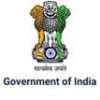The project, being executed at TIFR Mumbai's Colaba campus, is a tripartite collaboration between DYSL-QT, TIFR and Tata Consultancy Services (TCS). DYSL-QT scientists put together the control and measurement equipment using a combination of commercial off-the-shelf electronics and custom-programmed development boards. The qubits were designed and fabricated at TIFR and the quantum processor architecture is based on an innovative ring-resonator design invented at TIFR. The cloud-based interface for the quantum hardware has been developed by TCS.
The scientists are now working on optimising various aspects of the system's performance before it is ready for operation. Plans are underway to provide wider access to the system as a testing ground for education, research and testing of superconducting quantum devices. The next development goal is to increase the number of qubits and assess scaling trends in relation to technology challenges, development effort/time and monetary resources required to develop, operate and commercialise quantum computers of various sizes. This will involve a holistic approach from engineering on the foundations of quantum theory to commercial feasibility.


